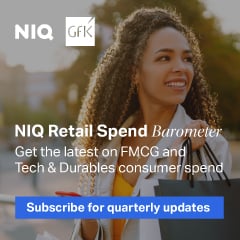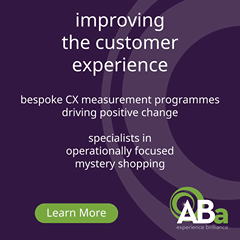Enhancing loyalty schemes in the modern retail sector
By Rolands mesters, the co-founder and CEO of Nordigen.
Customer loyalty is high up on the list of priorities for retail businesses, with research over the years finding that repeat customers typically spend 67% more than first-time buyers. To cultivate loyalty, businesses develop programs to create connections with the customers and entice them into a continued two-way relationship through benefits and point systems. An often praised example of a loyalty scheme is the Starbucks Rewards app.
Continued use of loyalty schemes leads customers to develop an emotional connection through repeated interactions and accumulation of rewards. This leads to brand loyalty, which results in higher spend, more excitement for new products, and benefitting from customers as a self-established marketing force. A happy, loyal client base spreads news and information for free.
Knowing this, it becomes an imperative part of brand strategy to create a loyalty program that retains customers, gives them an enhanced experience, and is easy to use, while also being sustainable for the brand. Enter open banking.
Open banking refers to the PSD2 approved way of sharing financial data with third-party service providers for an-overall improved customer experience and the development of new products and tools. It is a popular technology among personal finance management tools (PFMs) and accounting software and lending solutions. As open banking continues to grow it is sure to make its way into a variety of customer-focused industries. Loyalty programs are one of the opportunities for growth due to the levels of innovation that open banking can provide for both users and brands.
Open banking meets loyalty programs
Loyalty programs in some variation have been around since the 1700s, when US retailers started giving out copper coins to their customers to be redeemed for products at a later date. Since then, companies have opted for more technologically-savvy options, however, there is room for improvement. Many versions lacked the user friendly experience required to retain customers and get them invested. Some required customers to follow outside links to receive rewards, while others used a cookie-based system that called to first enable cookies and then continue on to a lengthy process with far too many steps. Despite the use of cookies, the process lacked a necessary level of personalisation and led to lower retention rates.
If a company were to utilise open banking within their reward application, they could enhance the process by personalising the experience to the user involved. This could be achieved through gathering financial information on the client and analysing it to create a customer profile. Client profiles can then be used to offer specific rewards and prizes based on client purchasing and spending habits, making sure that customers are receiving benefits that appeal to them.
The process can also be enhanced by allowing the client to access and manage all their rewards and points in one application that connects directly to their bank accounts. This would streamline the process of receiving monetary benefits from the brand and cashbacks could be deposited in real time, without having to switch to third-party platforms.
Creating a smoother customer experience, as well as tailoring rewards to specific customers are invaluable elements when it comes to benefit programs, as they can help combat loyalty fatigue. This term refers to a phenomenon where clients stop seeing value in their rewards scheme and they either participate less, or withdraw completely. By meeting customer needs and keeping up with current user-focused trends, retail businesses are able to cultivate a much more meaningful relationship with their clients, ensuring that they remain loyal customers for extended periods of time.
Replacing loyalty cards
Loyalty card programs became more popular in recent years, allowing customers to make both online and physical, in-store, purchases using specific brand cards which would enable them to gain rewards after a period of time. However, clients can often be left waiting to reap the benefits of their loyalty, as they slowly gather points, waiting until they rack up an amount of value.
New open banking solutions, such as Ireland-based LoyalBe, are emerging to streamline the process even further. LoyalBe has created an open banking powered application to gather rewards and receive cashbacks automatically when paying with a linked payment card. Through this application, customers are able to enjoy a more seamless experience and retailers can also benefit by securely gathering customer data and increasing client loyalty.
Open banking creates value as much for the customer as it does for the retail businesses. The innovative technology facilitates the creation of more user-friendly services, quicker rewards programs, help establish detailed user profiles and provide tools to the retailers to help to create systems that work based on data analysis. Open banking encourages cultivating premium customer loyalty, benefiting the businesses as well as their long-term clients.
About the author
Rolands Mesters is the CEO and co-founder of Nordigen, the only freemium open banking API that connects to more than 2,300 banks in Europe. Rolands is a sales and growth hacker who is passionate about fintech. Rolands has been featured in the Forbes Latvia 30 Under 30 list as well as in TechCrunch, Sifted, and the Financial Times. Rolands regularly shares open banking insights and is considered one of the foremost experts on open banking worldwide.
Follow Nordigen with these links:














